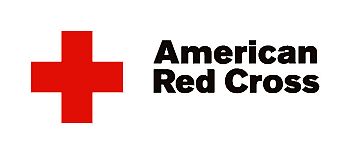 The American Red Cross encourages eligible blood donors to make and keep donation appointments to maintain the summer blood supply and help prevent a shortage. Donors of all blood types are currently needed, especially those with type O negative, B negative and A negative.
The American Red Cross encourages eligible blood donors to make and keep donation appointments to maintain the summer blood supply and help prevent a shortage. Donors of all blood types are currently needed, especially those with type O negative, B negative and A negative.
While the need for blood remains constant during the summer, donations drop. Between June and August, on average, two fewer donors give blood at each Red Cross blood drive than what hospitals need. This seasonal decline could be overcome if just two additional donors – above what is expected – give blood at each Red Cross blood drive this summer.
Every two seconds someone in the United States needs blood. Recently, a patient needed 79 blood products after injuries sustained during a car accident. Thanks to blood donors who gave in the days and weeks prior, blood products were readily available for this patient and thousands of others at approximately 2,700 hospitals and transfusion centers across the country supported by the Red Cross.
This summer, there are many chances to give hope with the Red Cross by giving blood. Visit redcrossblood.org or call 1-800-RED CROSS to learn more and make an appointment.
Upcoming blood donation opportunities in Marshall County include:
Monday, June 16 from 1:30 p.m. until 6:30 p.m. at the Marshall County Sheriff’s Office/Jail, located at 1400 N. Pioneer Drive in Plymouth. This is a Fallen Officers Blood Drive.
Thursday, June 19 from 11:30 a.m. until 5:30 p.m. at the Knights of Columbus, located at 901 East Jefferson St. in Plymouth.
Saturday, June 21 from 9 a.m. until 1 p.m. at the Coffee Lodge & Bakery, located at 225 E. Jefferson Street in Plymouth.
Monday, June 23 from 1 p.m. until 5:30 p.m. at Bourbon Christian School, located at 1325 N. Main St. in Bourbon.
Monday, June 23 from 3 p.m. until 7 p.m. at LifePlex, located at 2855 Miller Drive in Plymouth.
Simply call 1-800-RED CROSS (1-800-733-2767) or visit redcrossblood.org to make an appointment or for more information. All blood types are needed to ensure a reliable supply for patients. A blood donor card or driver’s license or two other forms of identification are required at check-in. Individuals who are 17 years of age (16 with parental consent in some states), weigh at least 110 pounds and are in generally good health may be eligible to donate blood. High school students and other donors 18 years of age and younger also have to meet certain height and weight requirements.












